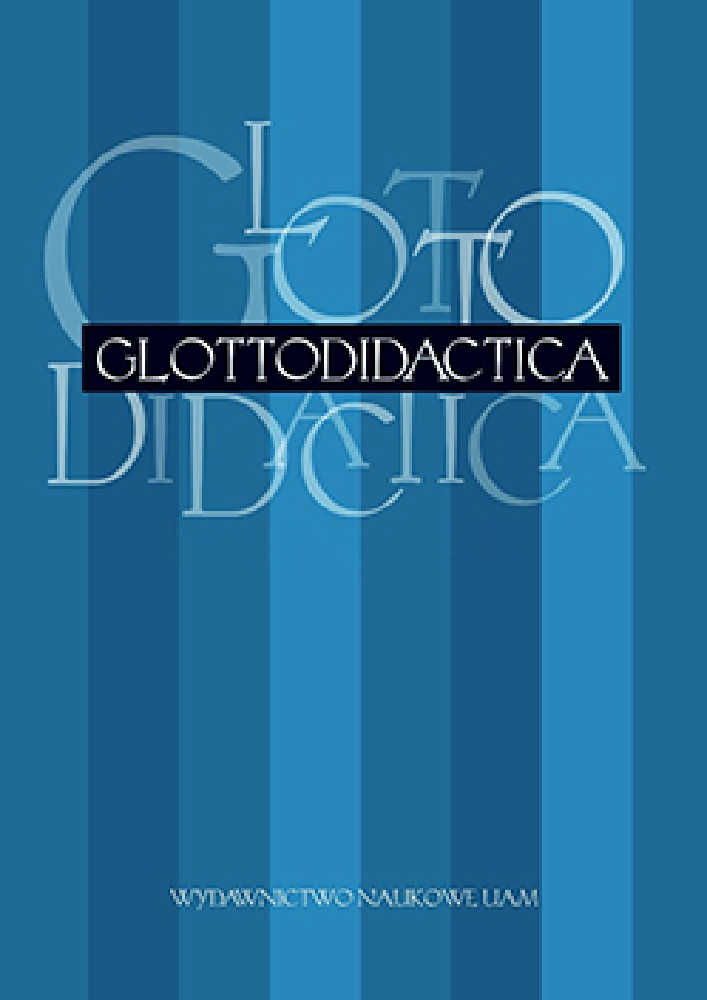Abstract
The article starts with a discussion of the essential theories of reading and focuses on different models of understanding. In the next step, based on fragments taken from a novel by M. Zusak, the article develops an integrative literary and language teaching model in intercultural school lessons of literature in a way which stimulates a highly functional analytical, receptive and productive handling of language semantics and performance. It demonstrates the combination of literature and film as a possibility for successful literary, language and media learning.
Literaturhinweise
Ahrenholz, B. (2008). Erstsprache – Zweitsprache – Fremdsprache. In: B. Ahrenholz / I. Oomen- Welke (Hrsg.). Deutsch als Zweitsprache. Baltmannsweiler: Schneider, S. 3–16.
Baumert, J. (2001) (Hrsg.). Deutsches PISA-Konsortium. Pisa 2000. Basiskompetenzen von Schülerinnen und Schülern im internationalen Vergleich. Opladen: Leske + Budrich.
Belgrad, J. / Fingerhut, K. (1998). Annäherungen an Literatur im Unterricht. In: J. Belgrad / K. Fingerhut (Hrsg.). Textnahes Lesen. Baltmannsweiler: Schneider, S. 5–14.
Chomsky, N. (1957). Syntactic structures. New York: de Gruyter Mouton.
Colombo-Scheffold, S. (2010). Ausländisch für Deutsche: Sprachen der Kinder – Sprachen im Klassenzimmer. Freiburg: Fillibach.
Dauer, Y. (2012). Verfolgung, Angst, Tod – und Hoffnung? Der 2. Weltkrieg im Spiegel der Kinder- und Jugendliteratur am Beispiel von Markus Zusaks „The book thief“. In: A. Bartl / A. Klinge (Hrsg.). Transitkunst: Studien zu Literatur 1890–2010. Bamberg: Bamberg Press, S. 475–513.
Ehlers, S. (2008). Lesekompetenz in der Zweitsprache. In: B. Ahrenholz (Hrsg.). Deutsch als Zweitsprache. Baltmannsweiler: Schneider, S. 215–227.
Feilke, H. / Tophinke, D. (2016). Grammatisches Lernen. Praxis Deutsch, 256, S. 4–12.
Freise, M. (2006). Vier Weisen nach dem Text zu fragen. In: V. Bockholt / M. Freise / W. Lehfeldt / P. Meyer (Hrsg.). Finis coronat opus. Göttingen: Vandenhoek & Rupprecht, S. 71–83.
Gadamer, H.-G. (1990). Hermeneutik. Wahrheit und Methode: Grundzüge einer philosophischen Hermeneutik. Tübingen: Mohr Siebeck.
Iser, W. (1976). Der Akt des Lesers. München: Fink.
Johnson-Laird, P.N. (1983). Mental models. Cambridge: CUP.
Karg, I. / Kuzminykh, K. (2014). Sprache und Literatur als Bildungskomponenten. Diskurs, Historie und Empirie. Frankfurt a. M.: Peter Lang.
Kintsch, W. (1998). Comprehension: a paradigm for cognition. Cambridge: CUP.
Kniffka, G. / Siebert-Ott, G. (2007). Deutsch als Zweitsprache. Lehren und lernen. Paderborn: Schöningh.
Korte, H. (2002). „K wie Kanon und Kultur. Kleines Kanonglossar in 25 Stichwörtern.“ In: H.L. Arnold (Hrsg.). Literarische Kanonbildung. München: edition text + kritik, S. 25–38.
Krifka, M. (2014). Das mehrsprachige Klassenzimmer. Berlin: Springer.
Kuzminykh, K. (2014). Comics und graphic novels im multikulturellen Deutschunterricht. Glottodidactica. An International Journal of Applied Lingiustics, XLI (2), S. 75–87.
Kuzminykh. K. (2017). Erzählen im integrativen Deutschunterricht. Glottodidactica. An International Journal of Applied Lingiustics, XLIV (2), S. 75–95.
Leisen, J. (2013). Handbuch Sprachförderung im Fach – Sprachsensibler Fachunterricht in der Praxis. Stuttgart: Klett-Sprachen.
Oatley, K. (1994). A taxonomy of the emotions of literary response and theory of identification in fictional narratives. Poetics, 23, S. 53–74.
Percival, B. (2013). Die Bücherdiebin. Deutschland / USA.
Schnotz, W. (2006). Was geschieht im Kopf des Lesers? Mentale Konstruktionsprozesse beim Textverstehen aus der Sicht der Psychologie und der kognitiven Linguistik. In: H. Blühdorn / E. Breindl / U. Waßner (Hrsg.), Text – Verstehen. Grammatik und darüber hinaus. Berlin: de Gruyter, S. 222–238.
Zusak, M. (2005). The book thief. Sydney: Picador.
Zusak, M. (2007). La ladrona de libros. Barcelona: Lumen.
Zusak, M. (2008a). La bambina che salvava i libri. Milano: Mondolibri.
Zusak, M. (2008b). Die Bücherdiebin. Hörbuch (gesprochen von Boris Aljinović). München: Random House Audio.
Zusak, M. (2008c). Die Bücherdiebin. München: Blanvalet / Random House.
Zusak, M. (2008d). Kitap hırsızını. Istanbul: Selim Yeniçeri.
Зусак, M. (2009). Книжный вор. Москва: Эксмо.
Zwaan, R. (1996). Toward a model of literary comprehension. In: B. Britton / A. Graesser (Hrsg.). Models of understanding text. Mahwah NJ: Erlbaum, S. 241‒256.
Lizenz
Authors
Authors of texts accepted for publication in Glottodidactica are required to complete, sign and return to the editor's office the Agreement for granting a royalty-free license to works with a commitment to grant a CC sub-license.
Under the agreement, the authors of texts published in Glottodidactica grant the Adam Mickiewicz University in Poznań a non-exclusive, royalty-free license and authorize the use of Attribution-NoDerivatives 4.0 International (CC BY-ND 4.0) Creative Commons sub-license.
The authors retain the right to continue the free disposal of the work.
Users
Interested Internet users are entitled to use works published in Glottodidactica since 2016, under the following conditions:
- attribution - obligation to provide, together with the distributed work, information about the authorship, title, source (link to the original work, DOI) and the license itself.
- no derivatives - the work must be preserved in its original form, without the author's consent it is not possible to distribute the modified work, such as translations, publications, etc.
Copyrights are reserved for all texts published before 2016.
Miscellaneous
Adam Mickiewicz University in Poznań retains the right to magazines as a whole (layout, graphic form, title, cover design, logo etc.).





